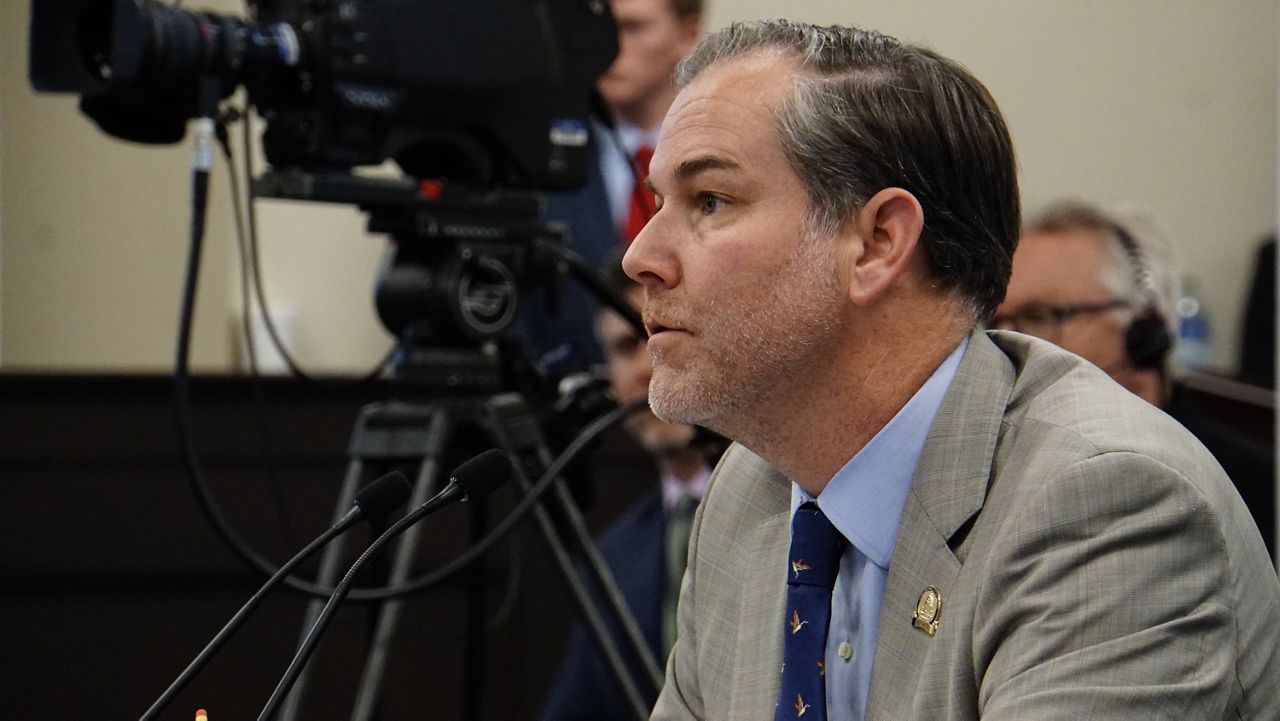FRANKFORT, Ky. — Kentucky lawmakers seem ready to resume work on a bill dealing with diversity, equity and inclusion practices at public universities. But the outcome could be different next year because they have had months to try to work out their differences, the state Senate's new majority floor leader said Tuesday.
“It’s an issue that seems to continue to play its way into policy discussions across many states,” State Sen. Max Wise, R-Campbellsville, said during an interview with The Associated Press.
A conservative quest to limit DEI initiatives gained momentum this year in statehouses and college governing boards. GOP lawmakers in about two dozen states filed bills seeking to restrict DEI initiatives. They were countered by Democrats who sponsored supportive DEI measures in about 20 states.
In Kentucky, DEI legislation died this year amid a House-Senate impasse. For Republicans — who hold supermajorities in both chambers — it was a rare setback on a priority, hot-button issue.
Wise said Tuesday he expects GOP lawmakers to take up a DEI bill again next year during Kentucky's 30-day legislative session, which convenes in Jan. 2025, but said he hasn't seen any draft legislation on the issue. Wise's Republican Senate colleagues recently chose him for the majority floor leader role.
When this year's session ended in mid-April, many lawmakers left the Capitol disappointed a DEI measure didn't pass, Wise said. By next year, however, lawmakers will have the benefit of spending additional months studying and discussing the issue, he said.
“I think a lot of times when we have legislation from one session and it doesn’t pass and it goes into the next year, I think that’s where things typically get worked out in the interim," Wise said. "I would be very surprised, if we had another DEI bill, that it did not pass the second time.”
The issue generated contentious debates this year in Kentucky when the Senate and House passed different versions of DEI bills. Opponents warned that proposed restrictions on campuses could roll back gains in minority enrollments and stifle campus discussions about past discrimination.
The Senate-passed version would have prohibited “discriminatory concepts” in non-classroom settings, such as training sessions and orientations, and would have barred schools from providing preferential treatment based on a person’s political ideology. It also would have prohibited requiring people to state specific ideologies or beliefs when seeking admission, employment or promotions.
The House stripped the Senate’s language and inserted a replacement that took a tougher stance by also defunding DEI offices and officer positions. Both versions died when the legislative session ended.
Gov. Andy Beshear, D-Ky., has denounced efforts to limit DEI practices at college campuses. At a civil-rights rally in March, Beshear said: "Diversity will always make us stronger. It is an asset and never a liability.”
Republican lawmakers, with their supermajorities, could easily override a Beshear veto if a DEI bill he opposes reaches his desk.
This year's debate, and the prospect of DEI legislation resurfacing in 2025, already had an impact on some campuses. The University of Kentucky announced in August it was disbanding its office promoting diversity and inclusion efforts in response to questions from state policymakers. The university's president stressed that the school’s core values remained intact — to protect academic freedom and promote a “sense of belonging” for everyone on campus, regardless of background or perspective.
Wise, 49, a veteran committee chairman, will be at the center of Senate action on DEI or any other legislation as majority floor leader. He succeeds Sen. Damon Thayer, R-Georgetown, in the leadership job. Thayer, who helped shape rafts of conservative policies, did not run for reelection this year. Senate President Robert Stivers, R-Manchester, is the chamber's top leader, and he and President Pro Tem David Givens, R-Greensburg, are Senate mainstays.



